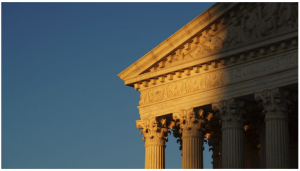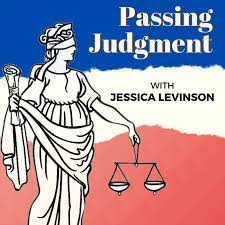
On February 25, 2022, President Biden nominated the Honorable Ketanji Brown Jackson to assume the seat of Justice Stephen Breyer on the United States Supreme Court. According to The White House, President Biden consulted Senators of both parties to create a list of appropriate nominees before selecting Jackson as his finalist. The President thus fulfilled a campaign pledge he made to nominate an African American woman to the highest court in the country, if a vacancy occurred during his tenure in office. The opportunity presented itself recently when Justice Breyer, aged 83, announced his retirement. Breyer has served on the Supreme Court since 1994 and mentored Ketanji Brown Jackson. Now, if approved by the Senate, Judge Jackson would replace the exiting Justice.
Article II, Section 2 of The Constitution specifies that, “with the advice and consent of The Senate,” The President shall have the power to nominate Supreme Court justices. Now that President Biden has made his choice for nominee, the Senate will engage in its role in the process, offering “advice” and likely “consent”. Judge Jackson, as with every modern day Supreme Court nominee, must complete a questionnaire as part of the Senate confirmation process. This questionnaire covers topics such as the nominee’s education, memberships to organizations, potential conflict of interests and judicial writings. In addition to the questionnaire, Judge Jackson will begin meeting with Senate leadership from both parties in early March. This will be followed by public hearings held by the Senate Judiciary Committee, in which Judge Jackson will field questions from the committee members to identify her judicial philosophy, assess her case history and learn about her as a person.
You can see Judge Jackson’s responses to the Senate’s Judiciary Committee Questionnaire here.
Article III, Section 1 gives justices lifelong tenure “during good behavior” and significant power to check the other two branches of government, yet it says little regarding how many justices there would be or who would qualify. Tradition, rather than law, dictates that certain characteristics and background were an unwritten expectation of these candidates for most of U.S. history.
All of the 115 people ever nominated by a president have been attorneys who studied law formally, but this is not a codified requirement. Throughout the history of the U.S. Supreme Court, most nominees had no judicial experience before being sworn in as a Justice, but many were seasoned in the application of legal theory. The majority of Supreme Court Justices served in an Appellate Court, which reviews the legality and fairness of the procedures and the decisions made by lower courts. For the minority of Supreme Court justices with trial experience, most were prosecutors, not defense attorneys. The last defense attorney to be sworn in to the high court was the famed civil rights attorney Thurgood Marshall who retired in 1991. President Biden’s nominee has extensive defense and trial experience.
Since Supreme Court Justices have no term limits, the timing of their departure creates an opportunity for whomever is sitting as president to fill the seat. Former President Trump had the opportunity to see three of his nominees confirmed. Judge Jackson would be President Biden’s first, if the Senate ultimately confirms her nomination. A simple majority of Senators are needed to confirm. Democrats hold a slim majority of votes, and Jackson’s qualifications could garner a few Republican ‘yea’s’ as well.
This week’s Current Events resources examine the nominating and confirmation process of a Supreme Court Justice. The resources shared provide historical context and current issues surrounding this important process within the U.S.’s federal government.
Looking for more current events resources? Sign up at our We the Teachers Educator Resource Community page, where you can find all of our Current Events, and learn about our other programs!
Essential Questions, Vocabulary & Extend the Resources:
- What are the qualifications for Supreme Court justices?
- What is the process for filling vacant seats on the Supreme Court?
- How do vacancies on the Supreme Court cause opportunity and controversy?
- What is the role of the Supreme Court?
- What is the difference between appeals and cases of original jurisdiction?
- To what extent do Supreme Court justices reflect the demographics of the population and how has this changed over time?
- How does the Supreme Court check the other branches of government?
Click here for a hardcopy of the Essential Questions & Supreme Court Justice Nominating Process Vocabulary
Click here for a hardcopy of the Extend the Resources handout with suggested lesson activities and extensions
Videos:
Podcasts:
How do Supreme Court nominations happen?, 5 Things, USA Today, February 27, 2022
Who is Justice Ketanji Brown Jackson?, Passing Judgment, February 25, 2022
Biden Nominates Ketanji Brown Jackson to SCOTUS”, CATO Daily Podcast, February 25, 2022
Ketanji Jackson Brown is the first Black woman nominated to the Supreme Court, Consider This, NPR, February 25, 2022
Background Resources:
About the Court, Frequently Asked Questions, Supreme Court of the United States
Who were the first Supreme Court justices?, Constitution Daily, February 1, 2022
Up until the postwar era, U.S. Supreme Court confirmations usually were routine business, Pew Research, February 7, 2022
Judiciary Act of 1789: Primary Documents in American History, Library of Congress
Why Do 9 Justices Serve on the Supreme Court?, History
Questionnaire for Nominee to the Supreme Court, United States Senate Committee on the Judiciary
Recent Articles:
President Biden Nominates Ketanji Brown Jackson to Serve on the Supreme Court, The White House
Jackson to meet with lawmakers to begin Supreme Court confirmation process, CBS News, February 28, 2022
How Will Biden’s Nominee Change The Supreme Court?, Texas A&M Today, February 25, 2022
Biden Supreme Court pick Jackson brings criminal justice experience to the bench, Roll Call, February 25, 2022
Notable opinions by high court nominee Ketanji Brown Jackson, AP News, February 25, 2022
Biden introduces Judge Ketanji Brown Jackson as Supreme Court nominee, NBC News, February 25, 2022
Recent Editorials:
The consequential — and inconsequential — nomination of Ketanji Brown Jackson, The Los Angles Times, February 25, 2022
Why a Justice Ketanji Brown Jackson will make a difference, The Brookings Institution, February 25, 2022
The Ketanji Brown Jackson Pick, The National Review, February 25, 2022
Opinion: Biden’s Supreme Court nominee should be a criminal defense lawyer, The Washington Post, February 2, 2022
Lesson Plans:
The Supreme Court: The Judicial Power of the United States, NEH Edsitement!, May 10, 2019
The Supreme Court, Lumen Learning
Supreme Court Nominations, iCivics
Checks and balances in Supreme Court Nominations, PBS Newshour Extra
To Confirm or Not to Confirm: That is the Question?, Bill of Rights Institute
Lesson Plans for Elementary Students:
Explainer: Why the Supreme Court ended up with 9 justices—and how that could change, Newsela, October 28, 2020
Supreme Court Nominations, Nearpod
Media & News Literacy Lesson Plans:
Media Literacy Resources – Newseum
Resource Library – News Literacy Project
News & Media Literacy Lessons – Common Sense
Media Misinformation, Viral Deception, and «Fake News» – University of Wyoming
Evaluating Sources in a ‘Post-Truth’ World: Ideas for Teaching and Learning About Fake News – New York Times Lessons




